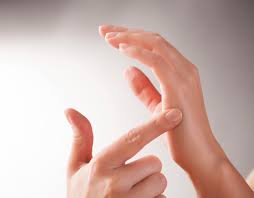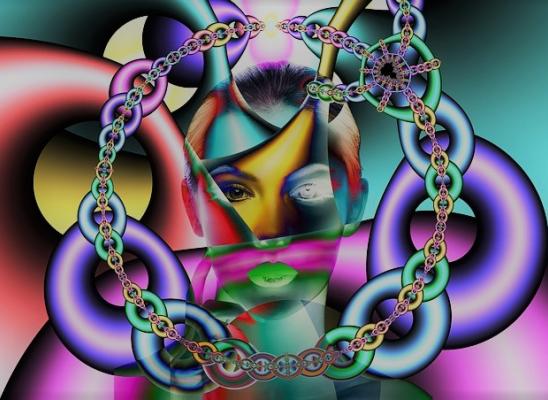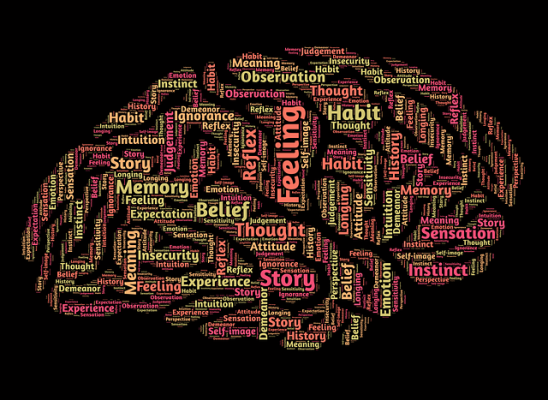Emotional Freedom Technique

Online test
Find out the severity of your symptoms with this free online test
The mind and the body are connected and therapeutic modalities such as the Emotional Freedom Technique (EFT) or “body tapping” address the cognitive and the biological. The methods of action remain unknown, but published research shows it can be effective for mental health issues.
What is EFT?
EFT combines psychotherapeutic methods of cognitive therapy and exposure therapy with the biological method of acupressure. Cognitive therapy focuses on how we see the world, our thoughts about the world, and how those thoughts influence emotions and behaviors. It is one of the most-used methods of therapy for many disorders. Exposure therapy is based on the idea that small, incremental exposures to traumatic thoughts, feelings, or events, combined with relaxation, can help desensitize someone to the effects of traumatic thoughts, feelings, or events. Exposure therapy is most often used with people who have phobias and post-traumatic stress disorder.
Acupressure is closely related to acupuncture, which is both based on Chinese medicine that teaches disease is caused by blockages of energy flowing through the body along meridian pathways. It is believed that these blockages can be relieved at various points throughout the body which results in the elimination of symptoms and illness. Acupuncture uses tiny needles to relieve blockages while acupressure uses mild pressure or massage on the body to relieve blockages. For over 10 years, Harvard Medical School has been researching the effects of stimulating acupuncture points and imaging studies have found that certain points decrease activity in parts of the brain that deal with fear, a mechanism thought to play a role in many mental health disorders. In EFT, the process of “tapping” refers to the practice of tapping one’s fingers on the various acupressure points throughout your body.
Is it a valid therapy?
Studies on the clinical effectiveness of EFT have found that it is helpful for phobias, depression, anxiety, chronic pain, PTSD, food cravings, and obsessive-compulsive traits. The American Psychological Association (APA) has a protocol for determining whether a therapy meets criteria for evidence-based practice. A review of the literature published in 2012 found 51 peer-reviewed articles and 18 randomized controlled trials that they evaluated for design quality and were found to have demonstrated strong effect sizes. In plain English, that means the APA put EFT studies through a rigorous review and found that in many cases, the therapy worked.
Will it work for trichotillomania?
There is already evidence showing that cognitive behavioral therapy, including habit reversal training, can be effective for compulsive hair pulling. We also know that EFT has been found to be effective for people who have anxiety, stress, and some forms of impulse control such as overeating. If trichotillomania goes hand in hand with anxiety, stress, and impulse control, it is highly possible that EFT can be another therapy to try. Even if it only helps relieve the triggers for hair pulling, it is a step in the right direction.
Word of caution
There are many versions of EFT, and while the method has been manualized, different therapists have the freedom to use EFT as they see fit. That is one of the risks of trying a new therapy. However, there are some things you can do to make sure that you get the most out of EFT.

Image: Transform Destiny
While it is possible to use EFT on your own according to the website, it is not recommended. If you are going to try EFT for trichotillomania, do so under the supervision of an expert in body-focused repetitive behaviors.
Research the therapist you are considering for EFT. The EFT Universe website offers certification and training for therapists to learn the therapy from the experts. Using a trained practitioner is highly recommended.
Find a body-focused repetitive behaviors specialist who uses EFT. Trichotillomania is more complex than some other mental health disorders because there are many other disorders that can co-occur such as anxiety and depression. Therapists who are trained to work with people who have body-focused repetitive behaviors are going to know how to structure EFT sessions so they benefit you and your set of symptoms.
Talk to others in your support network for recommendations. If you are part of a trichotillomania support group, either in person or online, check with other members to see if what others experience with EFT. They may be the best people to consult about the effectiveness of EFT for hair pulling.
Emotional Freedom Technique, or body tapping, is a promising therapy that has been shown to be effective for a variety of mental health issues. It has not been studied specifically for body-focused repetitive behaviors yet, but people with anxiety, stress, and impulse control issues report success. Talk to your supporters, do your research, and find a therapist who is experienced with body-focused repetitive behaviors as well as EFT.
References
Emotional Freedom Techniques. Retrieved from http://www.eftuniverse.com/
Feinstein, D. (2012). Acupoint stimulation in treating psychological disorders: Evidence of efficacy. Review of General Psychology, 16(4), 364-380. doi:10.1037/a0028602
Online test
Find out the severity of your symptoms with this free online test
Start your journey with TrichStop
Take control of your life and find freedom from hair pulling through professional therapy and evidence-based behavioral techniques.
Start Now



